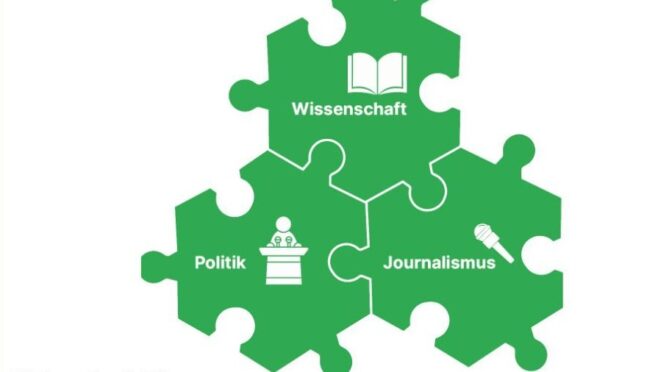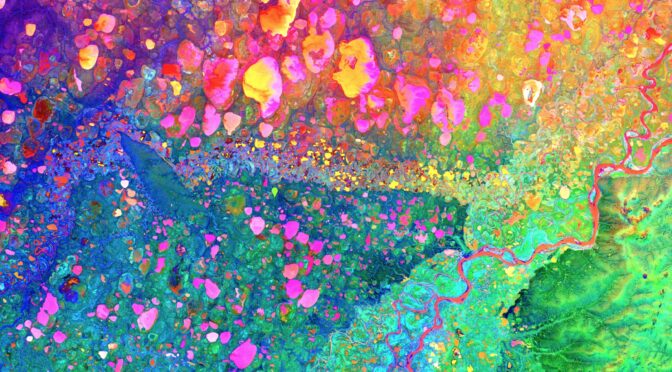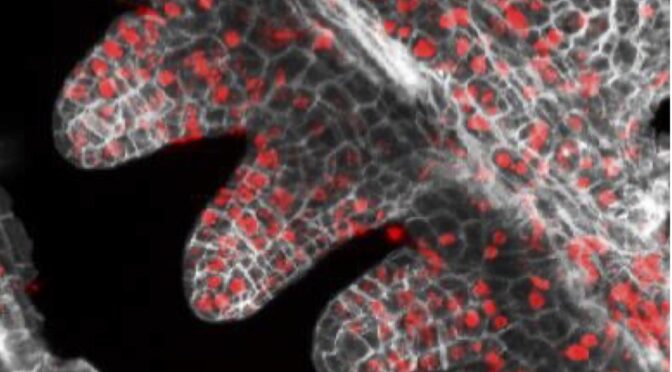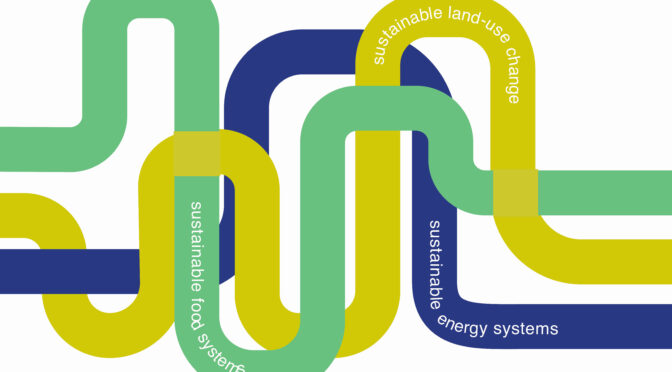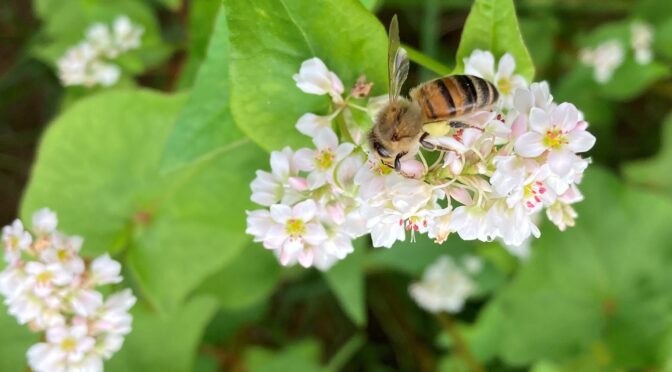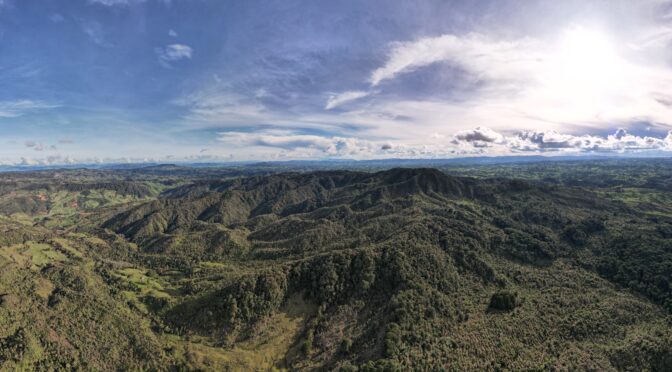Vom Klimawandel über den Umgang mit Pandemien bis zu geopolitischen Konflikten – in diversen Politikfeldern spielt wissenschaftliche Expertise eine Rolle. Dadurch gerät Wissenschaft unter Druck: Ihr wachsender Einfluss als System, die Welt zu verstehen und zu erklären, weckt Begehrlichkeiten und Widerstände zugleich. Vor dem Hintergrund unserer 20 Thesen für eine wissenschaftsfreundliche Kultur möchten wir an dieser Podiumsdiskussion in Zusammenarbeit mit der Universität Bern erörtern, wie politisch Wissenschaft sein darf.
All posts by Luisa Last
New Course Offer – Systems Thinking and Design for Social Change and in Policymaking
Are you interested in how systems thinking and design for social change is done and how this can have an impact in policymaking?
If yes, join our upcoming science and policy workshop.
Continue reading New Course Offer – Systems Thinking and Design for Social Change and in PolicymakingLandscape Diversity Begets Landscape Functioning -Relevance for policy implementation
Response Doctoral Program
It is that range of biodiversity that we must care for – the whole thing – rather than just one or two stars. – David Attenborough
When we think about ecological diversity, our minds often jump to different species of plants and animals. But what if there is more to this story? Diversity extends beyond genes, plants, and animals—it is also about the variety of ecosystems in the landscapes around us (Fig. 1). Imagine a patchwork quilt of croplands, forests, grasslands, wetlands and meadows. Could this mosaic be the key to a healthier, more resilient environment? Do these diverse ecosystems, working together, contribute to the overall balance of our landscapes on a grander scale?
Continue reading Landscape Diversity Begets Landscape Functioning -Relevance for policy implementationEvidence use in environmental policy: Barriers, best practices, and our roles as researchers
On November 13, 2024, Dr. Benjamin Hofmann will share his experiences on how can you prepare for a career at the interface between science and policy.
Continue reading Evidence use in environmental policy: Barriers, best practices, and our roles as researchersSecuring one apple a day in a changing climate
Response Doctoral Program
Apple orchards across many parts of the world are under stress due to a rapidly-changing climate characterized by more frequent and intense extreme weather events such as heat waves, droughts and episodes of spring frost. Despite being the most produced fruit in Europe, can apples withstand the changing environmental conditions that accompany climate change? What have local farmers done so far and what should they do in the future to adapt to these changing circumstances? Laurent Giguère, is a PhD student at ETH Zurich, as well as a RESPONSE fellow in the PhD program Science and Policy. He sought to answer these questions using mixed methods involving econometric modelling, index-based hazard assessment as well as both quantitative and qualitative surveying.
Continue reading Securing one apple a day in a changing climateThe Role of Linker Histones in Plant Reproduction and Seed Formation
Response Doctoral Program
Have you ever marveled at how a tiny seed grows into a towering tree? Seeds are at the foundation of all life, and their quality and yield are inevitably influenced by environmental conditions. Therefore, it is vital to enhance our understanding of how seeds form, such that sufficient yields can be ensured even during adverse conditions.
Continue reading The Role of Linker Histones in Plant Reproduction and Seed FormationRESPONSE Symposium 2024
Response Doctoral Program
On December 5, 2024 (2-7 pm, ETH Zurich, Main Building, Audimax), we are celebrating the imminent completion of the RESPONSE doctoral program «RESPONSE – to society and policy needs through plant, food and energy sciences».
Continue reading RESPONSE Symposium 2024Buchweizen als wertvolle Pflanze auf dem Feld – SRF Radiosendung
Response Doctoral Program
Warum wird in der Schweiz so wenig Buchweizen angebaut? SRF-1-Foodexpertin Esther Kern hat sich darüber in der Sendung «À point – Wissen aus der Küche auf den Punkt gebracht» mit RESPONSE Fellow Fabian Hess unterhalten. Als Doktorand an der ETH untersucht er über hundert Buchweizen-Sorten für den Anbau in der Schweiz.
Continue reading Buchweizen als wertvolle Pflanze auf dem Feld – SRF RadiosendungUnlocking Forest Restoration Success: DNA traces are Revolutionizing Wildlife Monitoring and Conservation
Response Doctoral Program
The tropics lost a whopping 4.1 million hectares of primary forests in 2022, equivalent to losing 11 football fields of forest per minute, according to research from the World Resources Institute. Numerous restoration projects worldwide target counteracting these large scales of forest destruction that are causing insurmountable loss of biodiversity. By planting native vegetation as well as by assisting in natural regrowth of vegetation, these projects aim to restore degraded forests back to their flourishing state. These efforts are not just about the trees. They are crucial for the recovery of animal communities too. However, it is unfortunately undermined by the limited data available on the influence of forest loss and regeneration on recovery of faunal species and communities.
Continue reading Unlocking Forest Restoration Success: DNA traces are Revolutionizing Wildlife Monitoring and ConservationUnlocking Forest Restoration Success: DNA traces are Revolutionizing Wildlife Monitoring and Conservation
Response Doctoral Program
The tropics lost a whopping 4.1 million hectares of primary forests in 2022, equivalent to losing 11 football fields of forest per minute, according to research from the World Resources Institute. Numerous restoration projects worldwide target counteracting these large scales of forest destruction that are causing insurmountable loss of biodiversity. By planting native vegetation as well as by assisting in natural regrowth of vegetation, these projects aim to restore degraded forests back to their flourishing state. These efforts are not just about the trees. They are crucial for the recovery of animal communities too. However, it is unfortunately undermined by the limited data available on the influence of forest loss and regeneration on recovery of faunal species and communities.
Continue reading Unlocking Forest Restoration Success: DNA traces are Revolutionizing Wildlife Monitoring and Conservation
